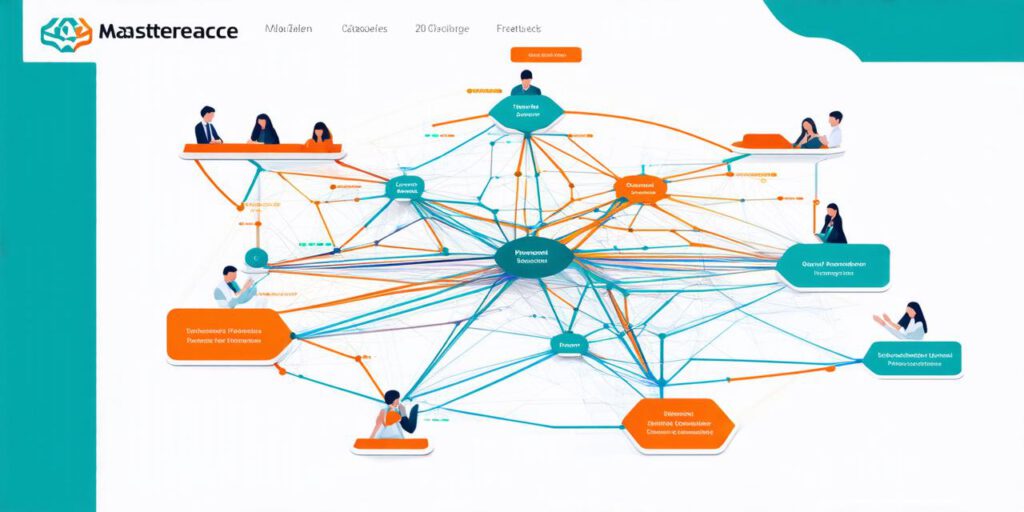Value streams are critical components of modern businesses. They enable organizations to streamline their operations and improve efficiency by aligning work processes across different departments.
However, managing value streams can be challenging.
This is where dedicated groups come in handy, as they help coordinate releases across various value streams.
Why Coordination Matters in Value Streams
Value streams are defined as a sequence of activities that create, deliver, and consume products or services. They bring together different departments, processes, and stakeholders to work together seamlessly. However, managing value streams can be complex due to the various stages involved, including development, testing, deployment, and maintenance.
Coordination is critical in value streams because it ensures that all departments work together towards a common goal. Without coordination, there is a risk of delays, miscommunication, and errors that can result in inefficiencies, increased costs, and dissatisfied customers. Coordination helps ensure that everyone involved in the value stream has a clear understanding of their roles and responsibilities, ensuring that work is completed on time, within budget, and to the required quality standards.
The Role of Dedicated Groups in Value Streams
Dedicated groups are teams made up of professionals from different departments who work together towards a common goal. They are designed to improve collaboration, streamline processes, and optimize operations by bringing together experts with complementary skills and expertise.
In value streams, dedicated groups are responsible for coordinating releases across different value streams.
Dedicated groups can take on several roles in value streams, depending on the organization’s needs. Some of the common roles include:
-
Product Owner: The product owner is responsible for defining and prioritizing product requirements. They work closely with stakeholders to ensure that the product meets their needs and requirements.
-
Scrum Master: The Scrum Master facilitates the Scrum process by removing obstacles, ensuring that everyone follows Scrum principles, and coaching team members on how to improve their performance.
-
Quality Assurance: The Quality Assurance team is responsible for testing the product to ensure it meets the required quality standards. They identify bugs, defects, and other issues and report them to the development team.
-
DevOps: The DevOps team is responsible for deploying and maintaining the product in production. They work closely with the development and QA teams to ensure that the product can be deployed quickly and efficiently.
Real-Life Examples of Dedicated Groups in Value Streams
Let’s take a look at some real-life examples to illustrate how dedicated groups can help organizations improve value streams:
Example 1: Amazon
Amazon is one of the world’s most successful companies, and they attribute much of their success to their focus on customer experience. They have a dedicated group called the “Customer Obsession” team that works closely with other teams across the organization to ensure that customers receive the best possible experience. The Customer Obsession team collaborates with product development, marketing, operations, and other teams to identify customer needs, design solutions, and test them in real-world scenarios.
Example 2: Toyota
Toyota is renowned for its production efficiency, which it has achieved through a system called “Toyota Production System.” The TPS is based on the principles of just-in-time manufacturing and continuous improvement, and it has helped Toyota become one of the most successful car manufacturers in the world. The TPS includes dedicated groups that work together to optimize production processes, reduce waste, and improve quality control.
Example 3: Netflix
Netflix is a leading streaming service that has disrupted the entertainment industry. They have a dedicated group called the “Streaming Operations” team that works closely with other teams across the organization to ensure that their services are always available, reliable, and fast. The Streaming Operations team collaborates with product development, engineering, operations, and other teams to monitor and optimize the performance of their services, identify issues, and resolve them quickly.
Benefits of Using Dedicated Groups in Value Streams
Using dedicated groups in value streams can bring several benefits to your organization, including:
-
Improved Communication: Dedicated groups bring together professionals from different departments, fostering improved communication and collaboration between teams. This can help reduce delays, improve quality, and ensure that everyone is on the same page.
-
Reduced Waste: By optimizing processes and reducing waste, dedicated groups can help organizations save time, money, and resources. They can identify inefficiencies, streamline workflows, and eliminate unnecessary tasks.
-
Increased Efficiency: Dedicated groups can improve efficiency by automating repetitive tasks, increasing the speed of production, and reducing errors. This can help organizations deliver products or services faster and more reliably.
-
Enhanced Customer Experience: By working closely with other teams across the organization, dedicated groups can ensure that products or services meet customer needs and requirements. They can also identify issues early on and resolve them quickly, improving customer satisfaction.
-
Better Quality Control: Dedicated groups can improve quality control by testing products or services to ensure they meet the required quality standards. They can identify defects, bugs, and other issues early on and report them to the development team for resolution.
How to Create Effective Dedicated Groups in Value Streams
Creating effective dedicated groups in value streams requires careful planning and execution. Here are some tips to help you create successful dedicated groups:
- Define Clear Roles and Responsibilities: Clearly define the roles and responsibilities of each team member. This will help ensure that everyone understands their tasks and goals, reducing confusion and improving collaboration.
- Cross-Functional Teams: Create cross-functional teams that include professionals from different departments. This will help foster improved communication, collaboration, and knowledge sharing.
- Establish Clear Communication Channels: Establish clear communication channels between team members, ensuring that everyone has access to the information they need to do their job effectively.
- Define Metrics for Success: Define metrics for success to measure the performance of your dedicated group. This will help you identify areas for improvement and track progress over time.
- Continuous Improvement: Encourage continuous improvement by regularly reviewing processes, identifying inefficiencies, and making improvements as needed.
FAQs
1. What is a dedicated group?
A dedicated group is a team of professionals from different departments who work together towards a common goal.
2. What are the benefits of using dedicated groups in value streams?
Using dedicated groups in value streams can improve communication, reduce waste, increase efficiency, enhance customer experience, and improve quality control.
3. How do I create effective dedicated groups in value streams?
To create effective dedicated groups in value streams, define clear roles and responsibilities, create cross-functional teams, establish clear communication channels, define metrics for success, and encourage continuous improvement.


